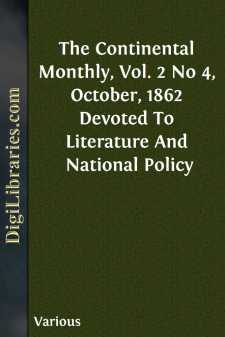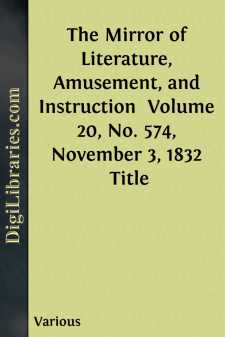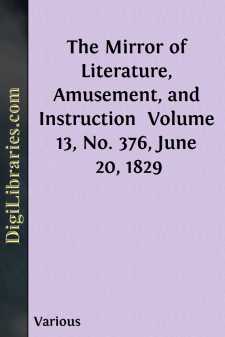Categories
- Antiques & Collectibles 13
- Architecture 36
- Art 48
- Bibles 22
- Biography & Autobiography 815
- Body, Mind & Spirit 144
- Business & Economics 28
- Children's Books 18
- Children's Fiction 14
- Computers 4
- Cooking 94
- Crafts & Hobbies 4
- Drama 346
- Education 58
- Family & Relationships 59
- Fiction 11833
- Games 19
- Gardening 17
- Health & Fitness 34
- History 1378
- House & Home 1
- Humor 147
- Juvenile Fiction 1873
- Juvenile Nonfiction 202
- Language Arts & Disciplines 89
- Law 16
- Literary Collections 686
- Literary Criticism 179
- Mathematics 13
- Medical 41
- Music 40
- Nature 179
- Non-Classifiable 1768
- Performing Arts 7
- Periodicals 1453
- Philosophy 65
- Photography 2
- Poetry 896
- Political Science 203
- Psychology 44
- Reference 154
- Religion 515
- Science 126
- Self-Help 85
- Social Science 82
- Sports & Recreation 34
- Study Aids 3
- Technology & Engineering 59
- Transportation 23
- Travel 463
- True Crime 29
Our website is made possible by displaying online advertisements to our visitors.
Please consider supporting us by disabling your ad blocker.
The Continental Monthly, Vol. 2 No 4, October, 1862 Devoted To Literature And National Policy
by: Various
Categories:
Description:
Excerpt
'THE CONSTITUTION AS IT IS—THE UNION AS IT WAS.'
This has been a pet phrase, in certain quarters, ever since the rebellion broke out. The men who use it are doubtless well aware of the prodigious power of such cries adroitly raised. The history of their influence over the unreflecting masses in all ages would be one of the most curious chapters in the history of human nature.
The phrase has a grand air. Its words are brave words to conjure with. It is susceptible of a good and loyal sense. It may mean, restore the supremacy of the Constitution and the integrity of the Union by crushing this atrocious rebellion to utter extinction by force of arms. It may mean that all the revolted States are to be brought back into the Union and under the authority of the Constitution by military subjugation. It may mean this, though it is certainly not a short or strong way of expressing the only thing which patriotic men have now to think of, to wish done, and to help do; and I do not believe any man of strong, clear head or right loyal heart would take this way of expressing it. Still, it may mean this; but if it does not mean this, it means nothing pertinent to exigency, nothing patriotic, nothing loyal.
But is this what they mean who trade with it now? No—nothing of the sort. They use it to distract and perplex the public mind; to draw it off from the one paramount obligation which the times impose upon the nation—the obligation of saving the national existence by the military extinction of the rebellion, regardless of all other ends and aims. They trade upon the popular reverence for the Constitution—that sense of its sacredness which lies so deep in the heart of the North. They do it to mislead the honest masses, whose hearts are mainly right, but whose heads—some of them, but, thank God! not many now—are not so clear to see the miserable fallacy of its application. They make it a text and pretext for inveighing against the government, and so weakening its hold on the popular confidence and support; for raising seditious outcries against any restriction of the license to talk and print treason—what they call tyrannical oppression of the freedom of speech and of the press. They know perfectly well that not a thousandth part of the toleration which traitorous talking and printing enjoy at the North—through the extraordinary and amazing leniency of the Government—is for one moment granted to Union sympathizers by rebel authorities in the South. They never have a word to say against the way in which loyalty to the Union is there crushed down by imprisonment, banishment, confiscation, and hanging. They have never a word to say against the brutal and fiendish atrocities of cruelty perpetrated there upon all who are even suspected of Union sentiments. They reserve all their indignation for the moderate repression which our Administration has seen fit, in some cases, to apply to traitorous utterances. They have even risen to the sublime impudence of denouncing it as a monstrous outrage on the constitutional rights of Northern traitors, that our Government has declined, in a few instances, to allow the United States mail to be the agent for transporting and circulating treasonable newspapers. I have quite lately been edified with the tone of lofty, indignant scorn with which one of these papers—published in the city of New-York—cries shame on the Government for refusing to be its carrier; though no man knows better than the editor that a publication at the South as much in sympathy with the Union as his is with the rebellion, would not only not get carried in the rebel mails, but, before twenty-four hours, would be suppressed, and its editor in prison, or more probably hung, by the direction or with the approbation of the rebel authorities; and in such a case, our New-York editor would not have space for a line to chronicle the fact, or for a word to denounce it to Northern indignation. But for our Government to decline carrying his treasonable sheet—that is monstrous! Behold him, a confessor in the sacred cause of freedom of speech and of the press! He will not succumb to unconstitutional tyranny! He will continue to print in spite of Government, and to send his treason through the land by the express companies, until the millennial day of the restoration of 'the Constitution as it is, the Union as it was!'
The men who utter this phrase talk, too, about the constitutional rights of the rebels—just as if those who are waging war for the overthrow of the Constitution had any rights under it! Such talk is an outrage on common-sense and decency. What constitutional rights have rebels in arms to any thing, but to be fairly tried for treason, to the forfeiture of their lives, if they escape merited death on the battle-field?
These out-criers for the Constitution and the Union strive also to confuse the public mind with constitutional questions as to the end or purpose of the war. What has the Constitution to do with that? What constitutional object is there for the nation or the Government to have now in view? This, and this only: the extinction of the rebellion by force of arms. Conventions, negotiations, concessions to rebels in arms—even if they were in arms for rights under the Constitution—would be utterly unconstitutional; much more are they so when the rebels are in arms not to vindicate constitutional rights, but for the overthrow of the Constitution, the destruction of the Government, and the dismemberment of the nation....












